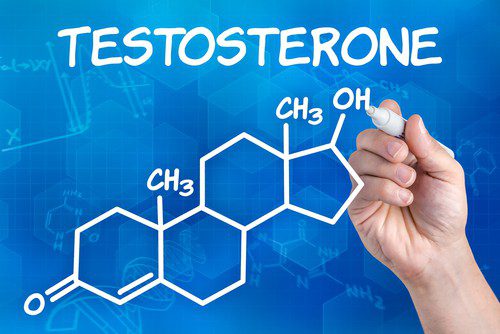
Many men are being treated with testosterone when there is not enough information about its risks, says a doctor in a letter to The Lancet Diabetes and Endocrinology journal. Dr. Stephanie Page, an endocrinologist at the University of Washington and Harborview Medical Center in Seattle, says that there needs to be more clinical trials to […]
 Many men are being treated with testosterone when there is not enough information about its risks, says a doctor in a letter to The Lancet Diabetes and Endocrinology journal. Dr. Stephanie Page, an endocrinologist at the University of Washington and Harborview Medical Center in Seattle, says that there needs to be more clinical trials to evaluate the benefits versus risks of testosterone therapy. She noted that larger and longer studies are necessary and that failing to do this “would do men’s health a disservice.”
Many men are being treated with testosterone when there is not enough information about its risks, says a doctor in a letter to The Lancet Diabetes and Endocrinology journal. Dr. Stephanie Page, an endocrinologist at the University of Washington and Harborview Medical Center in Seattle, says that there needs to be more clinical trials to evaluate the benefits versus risks of testosterone therapy. She noted that larger and longer studies are necessary and that failing to do this “would do men’s health a disservice.”
“Testosterone is a billion dollar industry, probably fuelled partly by direct to consumer advertising and some degree of overprescription,” Dr. Page states. “Physicians need to discuss with their patients that we simply do not fully understand the risks associated with testosterone use in older men, and use conservative treatment guidelines — such as those provided by the Endocrine Society — to guide therapeutic decisions.”
Page’s letter comes in light of recent safety concerns over testosterone. Previously, we reported that the European Medicines Agency (EMA) and the U.S, Food and Drug Administration (FDA) are investigating the cardiovascular risks associated with testosterone drugs. The reviews are based on two studies suggesting that use of testosterone therapy can increase the risks of heart attack and stroke. The most recent study, published January in PLoS One, found that use of testosterone drugs was associated with an increased risk of heart attack in older men and younger men with a pre-existing heart condition. In November, a study published in the Journal of the American Medical Association (JAMA) found that testosterone therapy was linked to a higher risk of stroke, heart attack and death.
Testosterone is the hormone largely responsible for the development of male sex characteristics. According to Mayo Clinic, testosterone levels peak in adolescence and early adulthood and slowly decline after the age of 30. Some men have a medical condition that causes them to produce an abnormally low amount of testosterone (hypogonadism); the FDA has only approved testosterone therapy for this use. Drug companies, however, have touted testosterone therapy as a way to treat “low-T” stating that it could help with symptoms such as low sex drive and low energy.
A consumer advocacy group, Public Citizen, said in February that the FDA should add a “black box” label to testosterone drugs. A black box label is the agency’s most serious warning notification. Public Citizen said that there have been mounting evidence of the drugs’ heart risks since 2010, and a recent analysis of 27 studies helps confirm these risks.
Lawsuits have already been filed over the cardiovascular issues allegedly caused by “Low-T” drugs. Several lawsuits filed in the U.S. District Court for the Northern District of Illinois allege that the medication AndroGel caused heart attacks, heart failure and stroke. None of the men suing over the testosterone drug had a previous history of heart disease.


